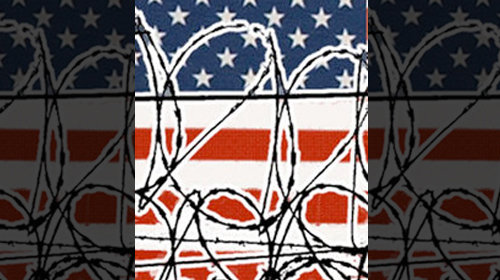
Sen. Ron Wyden (D-OR) deserves significant credit for placing a hold today on a draft intelligence spending bill that would place enormous new obstacles in the path of journalists trying to report on government illegality, fraud and waste in the intelligence community. Although it is true that national security sometimes requires secrecy, restrictions on freedom of the press would do little to benefit the national security while significantly insulating government wrongdoing from public scrutiny.
The bill, the Intelligence Authorization Act of 2013, is usually not controversial, but last summer Sen. Dianne Feinstein (D-CA) incorporated a new section that would, among other things, bar reporters from conducting background briefings with anyone other than senior intelligence officials or agency flacks, and could effectively bar former government officials cleared at a top-secret level from talking to the press for a year after leaving government (even if the conversations have nothing to do with classified information). That former CIA officer providing background on operations in Afghanistan? Totally muzzled. The CNN consultant talking about possible security breaches in the Petraeus case? Off the air. We wrote about the numerous problems with the legislation here.
The bill arose in response to numerous media reports last year regarding national security “leaks” about sensitive government operations like the Stuxnet virus and the president’s targeted killing program. Republicans accused the administration of selectively leaking to make the president look good on national security before the election, but Feinstein also expressed support for new legislation on the leaks issue. This is the result.
To be clear, the “leaks” bill has nothing to do with espionage. It has nothing to do with government officials disclosing classified information to foreign powers out of ideological sympathy or in hopes of personal gain. It has everything to do with making life tough on journalists, and on stifling the dozens of conversations that occur every day between the press and members of the intelligence community (most of which have little or nothing to do with truly classified information), except for those with the most senior officials. In other words, it has to do with enforcing message discipline by only allowing reporters to gather information from those who will toe the party line.
Specifically, the Feinstein bill introduced last summer would, among other things:
- Prohibit all “background” or “off-the-record” briefings with intelligence community staff save for communications with the director, deputy director or designated public affairs officer of the agency in question. This restriction would apply even when reporters have already acquired classified information and are seeking to determine any risk in disclosure.
- Along with a total prohibition on all current employees with security clearances, bar any past government employee who has had a top-secret clearance in the past three years from entering into a contract or “other binding agreement” (which could include virtually any informal arrangement) with the media. This would bar those who are most equipped to comment on sensitive national security matters from providing guidance to the public, and would apply even when there is no danger whatsoever of a classified leak.
- Potentially make it easier for the Department of Justice to directly target reporters with subpoenas in “leak” investigations. Already, the Obama administration has pursued more criminal leak prosecutions than any other; an expansion in federal subpoena authority would only accelerate that trend.
- Provide intelligence agencies with additional leverage (namely loss of pension benefits) to dissuade whistleblowers from disclosing government fraud, waste, mismanagement or illegality.
There is no question that some government information may be properly classified. However, in a vibrant democracy with a free press, the benefit of the doubt must always be on the side of public disclosure. The reason is simple: government has every incentive to bury harmful information as “classified,” and no incentive other than pure altruism to disclose by itself. Were it not for investigative journalism—dependent on so-called “leaks”—the public (and Congress) would never have learned about the the torture of prisoners in secret prisons, the warrantless surveillance of American citizens by the National Security Agency, missteps in the Iraq War and, yes, the dalliances of David Petraeus.
The 2013 intelligence authorization bill would build a veritable Berlin Wall between the press and the intelligence community, cannot be fixed and must be opposed in its entirety. Please support Wyden’s principled stand, and urge members to remove the leaks language from the final bill.
Learn more about national security: Sign up for breaking news alerts, follow us on Twitter, and like us on Facebook.




